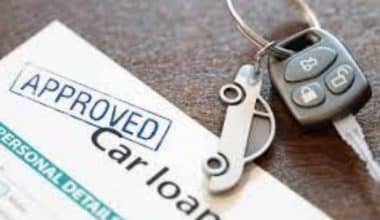Credit cards are a wonderful way to earn benefits such as cashback or airline miles. They provide an emergency source of income and can assist create the groundwork for future purchases such as a car or a home. But life happens, and before you know it, you’re saddled with multiple credit cards, each with a different balance. Planning and implementing a debt-reduction strategy can be difficult, but it is doable. With so many options for debt consolidation and repayment, the ideal technique may differ from person to person. Today, we explore some ways you can consolidate your credit card debt without hurting your credit or closing accounts and with good or bad credit. Let’s get to it.
What is Credit Card Debt Consolidation?
Credit card debt consolidation, in its most basic form, allows you to merge multiple credit card balances. If you presently make monthly payments on many credit cards, you may be able to consolidate them into a single monthly payment by using a loan or a balance transfer.
There are a couple of notable benefits to consolidating debt:
To begin, you may be able to reduce your payments. How? By combining your debts into a loan or credit card with a lower interest rate than your present accounts. Some credit cards even offer 0% introductory rates, to begin with, but these rates may only be available for a limited time.
Credit card debt consolidation may also make the payment procedure easier. It may be easier to make a single payment each month and track your progress as you pay off your debt if you bundle your balances together. Credit card consolidation could help you reduce your credit card debt and simplify your payments if you can get a 0% introductory APR as part of a balance transfer.
Why Should You Consolidate Your Credit Card Debt?
There are a number of compelling reasons to combine your credit card debt, including:
- You might be able to receive a lower interest rate. Many debt consolidation products (such as debt consolidation loans) have lower interest rates than credit cards, so consolidating your credit card debt could save you money.
- You’ll just have to keep track of one payment. Instead of maintaining many due dates for monthly payments, you’ll only have one. This makes the debt repayment procedure easier.
- You can catch up on overdue accounts. Debt consolidation allows you to pay off past-due debts, which can assist improve your credit score. Just keep in mind that having past-due accounts may make it more difficult to qualify for a debt consolidation loan or another credit card.
How to Consolidate Credit Card Debt Without Hurting Your Credit
The best option to consolidate debt is determined by the amount of debt you have, your credit score, and other considerations. The following are the five most effective methods for consolidating credit card debt without harming your credit:
#1. Balance transfer card
This option, also known as credit card refinancing, transfers credit card debt to a balance transfer credit card that charges no interest for a promotional period of 12 to 21 months. Most debt transfer cards require strong to excellent credit (a credit score of 690 or better).
A decent balance transfer card will not impose an annual fee, although many issuers will levy a one-time cost of 3% to 5% of the transferred amount. Before you choose a card, consider whether the interest you save over time will cover the fee. Aim to pay off your entire balance before the 0% intro APR term expires. Any leftover balance after that time will be subject to the standard credit card interest rate.
#2. Credit card consolidation loan
To consolidate credit card or other types of debt, you can take an unsecured personal loan from a credit union, bank, or internet lender. Ideally, the loan would provide you with a cheaper interest rate on your debt.
Credit unions are non-profit lenders that may offer more flexible lending terms and lower rates to their members than online lenders, particularly for customers with fair or terrible credit (689 credit score or lower). Federal credit unions impose a maximum APR of 18%.
Bank loans offer attractive APRs to applicants with good credit, and current bank clients may benefit from bigger loan amounts and rate cuts. Most online lenders allow you to pre-qualify for a credit card consolidation loan without damaging your credit score, however, banks and credit unions are less likely to offer this function.
#3. Home equity loan or line of credit
If you own a property, you may be able to obtain a loan or line of credit against the equity in your home to pay off credit cards or other debts.
A home equity loan is a lump-sum loan with a fixed interest rate, whereas a line of credit functions similarly to a credit card but with a variable interest rate.
During the draw period, which is usually the first ten years, a HELOC frequently requires interest-only payments. That means you’ll have to pay more than the minimum payment to reduce the principal and make a dent in your overall debt during that time period.
#4. 401(k) loan
If you have an employer-sponsored retirement account, such as a 401(k), taking a loan from it is not recommended because it can have a major impact on your future.
After you’ve ruled out balance transfer cards and other types of loans, consider it.
One advantage is that this loan will not appear on your credit report, thus it will have no effect on your credit score. However, the disadvantages are significant: if you can’t repay, you’ll owe a hefty penalty plus taxes on the unpaid balance, and you may be saddled with even more debt.
#5. Debt management plan
Debt management strategies combine many debts into a single monthly payment with a lower interest rate. It is best suited for people who are struggling to pay off credit card debt but are unable to do so due to a low credit score.
Debt management solutions, unlike certain credit card consolidation choices, have no effect on your credit score. If your debt exceeds 40% of your income and cannot be paid back within five years, bankruptcy may be a better alternative.
How to Consolidate Credit Card Debt with Bad Credit
If you’re having trouble getting out of debt and believe a debt consolidation loan will help, try taking the following steps to identify the best debt consolidation loan for your case.
#1. Check and monitor your credit score
Lenders base loan choices in significant part on the state of your credit. In general, the lower your credit score, the greater the interest rates on borrowing that lenders will offer you. Knowing your credit score makes it easier to discover lenders who may be ready to deal with you.
#2. Shop around
Accepting the first loan offer you see is rarely a wise decision. Instead, do your homework and evaluate loan amounts, payback periods, and costs from several lenders. These loans are available through local banks, national banks, credit unions, and online lenders. This procedure can be time-consuming, but it could save you hundreds, if not thousands, of money.
#3. Consider a secured loan
If you are having difficulty qualifying for a traditional debt consolidation loan, a secured loan may be worth exploring.
Secured loans, as opposed to unsecured loans, demand some type of collateral, such as a vehicle, home, or other asset. If you fail to make payments, the lender will seize the collateral to repay its losses. As a result, being authorized for a secured loan is often easier than getting approved for an unsecured loan, and you may even qualify for a lower interest rate.
#4. Wait and improve your credit
If you’ve done everything and still can’t locate a loan that will help you save money, it may be wiser to wait and work on your credit.
Make it a point to pay your bills on time every month for several months. It’s also a good idea to prioritize paying off credit card debt and eliminating all unnecessary monthly costs.
How to Manage Your Debt Consolidation Loan
Once you’ve obtained the funds from a debt consolidation loan, it’s critical to manage the money responsibly in order to keep your credit in good standing. Here are some steps you can take to accomplish this.
#1. Create a budget
Following loan approval, create a budget outlining how you will repay the money each month, ensuring that you will be able to do so.
Alternatively, you may want to immediately reduce some of your current discretionary expenses to ensure you have enough cash each month to repay your loan. If you have any extra funds, you can use them to pay down other debts that you did not consolidate to assist lower your DTI ratio.
#2. Pay off all debt immediately
When the funds from your debt consolidation loan arrive in your account, the first thing you should do is pay off all of your debts. To minimize temptation, you can alternatively request that the lender pay your debtors directly.
#3. Set up automatic payments
Once you’ve secured a debt consolidation loan, check to see if your lender offers autopay. Many do, and some even offer discounts for setting it up. Aside from saving money, setting up automatic payments is the most convenient way to keep your account current and your credit in good standing.
#4. Resolve any spending issues
Finally, you must recognize and resolve any ongoing spending issues. It’s simple to get back into debt if you don’t address the underlying behavioral money patterns that produced the problem. If history repeats itself, you may do even more harm to your credit score.
This includes making an effort not to use those credit cards again after they’ve been paid off since you don’t want to be back at square one.
Does Consolidation Hurt Your Credit?
Debt consolidation loans might have a negative impact on your credit, but it is only temporary. When you apply for a debt consolidation loan, the lender will run a credit check. A hard inquiry will be made, which might reduce your credit score by 10 points. Hard inquiries have a one-year impact on your credit score.
Can I Consolidate All My Credit Cards into One Payment?
Debt consolidation loans may be available through banks, credit unions, and installment loan lenders. These loans consolidate many of your debts into a single loan payment, reducing the number of installments you must make. These offers may also have cheaper interest rates than you are now paying.
How Do I Consolidate Debt?
You can combine debt by performing a balance transfer, obtaining a debt consolidation loan, utilizing home equity, or borrowing from your retirement account. A debt management plan or debt settlement are other choices, but these may harm your credit score.
How Can I Settle My Credit Card Debt Fast?
Targeting one bill at a time, focusing on high-interest debt, using the snowball method, and then consolidating debt are four strategies for paying off credit card debt faster.
Can Credit Card Debt be Forgiven?
Credit card debt is rarely erased, but you might be able to bargain for a lesser payment.
What are the 3 Biggest Strategies for Paying Down Debt?
The top 3 Strategies for paying off debt include:
- The debt snowball
- The debt avalanche
- Debt consolidation
Is There an App to Combine All Credit Cards?
Yes, there is an app that can help you simplify the process of repaying your credit card debt. Tally can be looked up.
How to Get Rid of Credit Card Debt Without Ruining Your Credit?
The Snowball method comprises striving to pay off the card with the lowest balance first, while making minimum payments on the others. The Avalanche recommends paying off the card with the highest interest rate first while making minimum payments on the others. Neither strategy will harm or assist your credit score.
How to Get Out of 30k Credit Card Debt?
Among the strategies to pay off $30K in credit card debt are:
- Concentrate on one debt at a time.
- Pay off your debts.
- Use a credit card for balance transfers.
- Create a budget to avoid future overspending.
What are 5 Ways to Get Out of Credit Card Debt?
Here are five simple steps you can take to reduce your interest costs and get out of debt faster:
- Learn about your interest rates and prioritize paying off the highest-interest cards first.
- Increase your minimum payment by twofold.
- Any additional money in your budget should be applied to your payment.
- Split your amount in half and make two payments.
- Transfer your balance to a credit card with a 0% interest rate.
Does Credit Card Debt Go Away Eventually?
Debts do not normally expire or disappear until they are paid, but in many places, creditors or debt collectors may have a time limit on how long they can employ legal action to collect a debt.
Conclusion
Credit cards and their associated rewards programs can be fantastic for earning and saving money for your next vacation or simply putting money back into your pocket. Getting into credit card debt, on the other hand, maybe taxing and quickly erase the value of all the points, miles, and cash back you’ve ever earned. Exploring strategies for fast eliminating this debt will help you achieve financial freedom and return to efficiently leveraging your credit cards.
- STUDENT LOAN CONSOLIDATION: Meaning, Rates & How to Do It
- How to Consolidate Credit Card Debt Without Hurting Your Credit (Updated!)
- HOW TO CONSOLIDATE STUDENT LOANS: Requirements and Detailed Guide
- Is a Personal Loan Good to Take?
- BEST DEBT CONSOLIDATION LOANS FOR BAD CREDIT IN 2023.
- SMALL PERSONAL LOANS: How To Get It & Top 10+ Personal Loans Bad Credits






